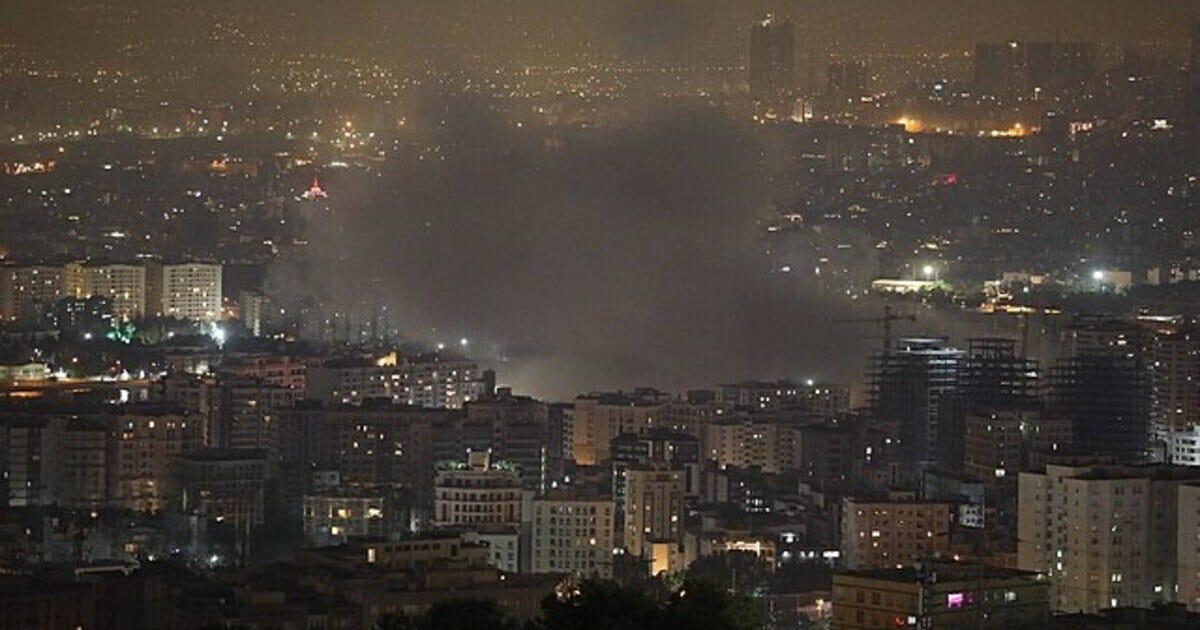OP-ED: The collapse of Iran’s proxy strategy
Dotan Rousso writes, "By funding and arming groups such as Hezbollah in Lebanon, Hamas in Gaza, and the Houthis in Yemen, Tehran exported instability across the Middle East."
Author: Dotan Rousso
For decades, the Iranian regime operated behind a well-crafted veil of proxy warfare. By funding and arming groups such as Hezbollah in Lebanon, Hamas in Gaza, and the Houthis in Yemen, Tehran exported instability across the Middle East—while largely insulating itself from direct retaliation. Iran fought its ideological battles against Israel, Western nations, and Sunni Arab states using the blood of others, not its own.
That strategy began to fall apart on October 7th, 2023, when Hamas launched an unprecedented terror attack on Israeli civilians. Over 1,200 people were killed, including more than 30 children, in what became the deadliest day for Jews since the Holocaust. This was no rogue operation—it was ideologically aligned with, and heavily supported by, the Iranian regime. The illusion that Iran could act as a puppet master from afar without consequence was shattered.
Since then, the landscape of the Middle East has shifted dramatically. Hamas has been largely dismantled in Gaza. Hezbollah, once Iran’s strongest regional ally, has suffered serious losses in southern Lebanon. The Assad regime in Syria, a longtime partner of Tehran, has collapsed and was replaced with a new regime that is hostile to the Iranian regime. Iran’s strategy of shielding itself behind a web of militant groups has collapsed.
The most dramatic shift came in June 2025, when Israel launched an extensive and targeted military operation on Iranian soil. Over the course of several hours, Israeli forces eliminated key Iranian military infrastructure, including nuclear development facilities, ballistic missile factories, and command centres. Among the dead were dozens of senior officials, including top commanders of the Islamic Revolutionary Guard Corps, high-ranking generals, and leading nuclear scientists. Some of Iran’s most sensitive facilities at Natanz and Fordow were reportedly damaged or destroyed.
The significance of this cannot be overstated. Israel moved beyond fighting proxies and directly struck the core of Iran’s military leadership and nuclear ambition. Tehran’s carefully constructed doctrine—of exporting war while remaining immune—has been dismantled.
In retaliation, Iran launched ballistic missile attacks on Israeli cities. While Israeli air-defense systems intercepted the majority of the projectiles, several civilians were killed, including children, and homes were destroyed. The trauma and loss are very real, but strategically, Iran’s retaliatory capabilities appear limited. Its missile attacks, while deadly, have not changed the trajectory of this conflict.
Now, the world watches to see where this leads. Both Israel and Iran appear to have little interest in dragging this into a prolonged war. Israel has likely achieved many of its primary objectives—crippling Iran’s nuclear infrastructure and eliminating much of its military leadership. Iran, on the other hand, is dealing with significant internal unrest, economic strain, and a damaged military command structure.
From a Canadian and broader Western perspective, this moment may well be remembered as one of the most consequential geopolitical developments in recent memory. A weakened Iranian regime, less capable of financing terror and closer to international accountability, could mean a more stable Middle East in the long run.
But the international community must remain vigilant. The risk of nuclear proliferation, cyber warfare, and asymmetrical retaliation remains. This is not just Israel’s concern—it is a global one.
Canada, with its commitment to human rights and global security, should recognize that weakening the machinery of terror in Tehran is not just a regional issue—it is a stand for the values we share. It is not about war. It is about preventing the next one.



“A weakened Iranian regime, less capable of financing terror and closer to international accountability, could mean a more stable Middle East in the long run.”
The exact opposite will likely occur. Look at Libya, total disaster to this day.
The Persian people are wonderful. And yet, within the next few years, they will join a coalition to attack Israel one last time. But this is very likely the setup for that, where Israel will finally get the peace they have sought for so long, and then Russia/Turkey/Persia/Libya/Sudan will attack. See Ezekiel 38 and 39 for details.